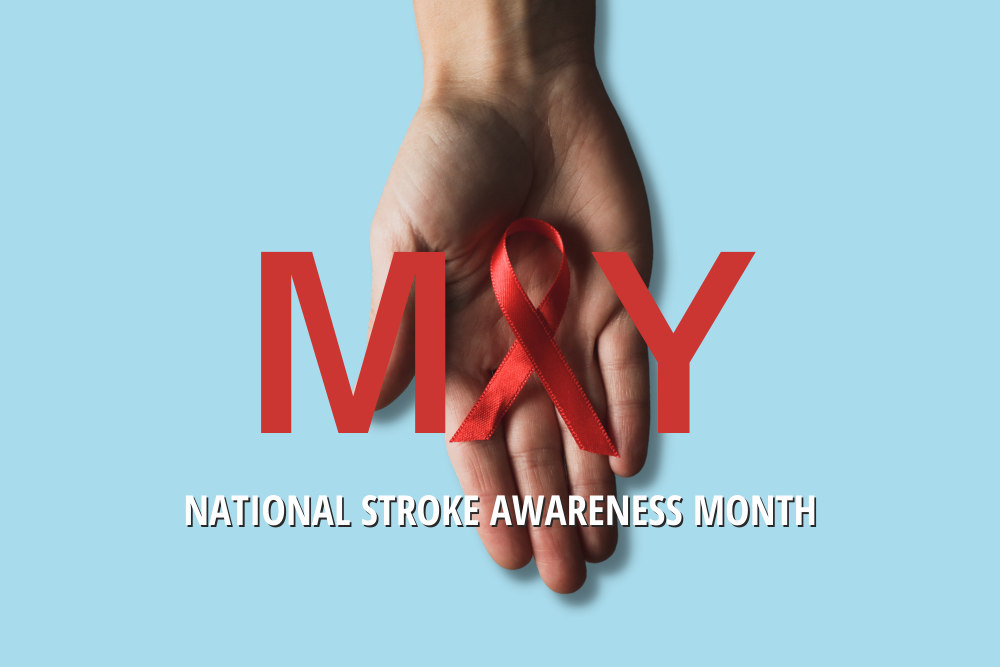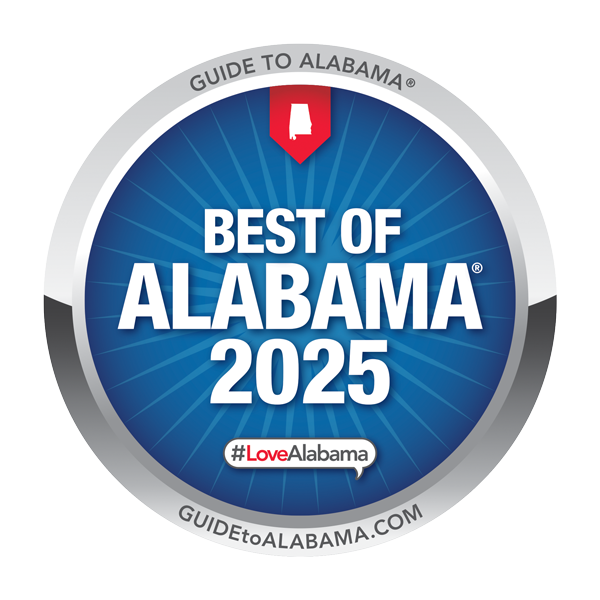May is National Stroke Awareness Month

Would you know what to do if someone around you was having a stroke?
It’s not a fun question to ponder, but it is an important one. Strokes are a leading cause of death and severe disability in the United States, affecting nearly 800,000 Americans every year. Immediate treatment is key to recovery, and every second counts – nearly 2 million brain cells die every minute a stroke remains untreated.
A stroke can happen to anyone, at any time, so it’s important that everyone knows how to recognize and respond to stroke symptoms. That’s why every May is National Stroke Awareness Month, an annual health campaign that seeks to educate the public about the basics of stroke.
What is a stroke?
A stroke occurs when blood flow to part of the brain is reduced or restricted, causing tissue death. There are three types of strokes:
- Ischemic Stroke, which occurs when blood vessels in the brain are blocked
- Hemorrhagic Stroke, which occurs when blood vessels in the brain burst
- Transient Ischemic Attacks (TIA), also known as a ministroke, which is a temporary reduction in blood flow due to blockage.
Brain tissue begins to die very quickly without access to oxygen-rich blood. If not treated immediately, a stroke can lead to severe and permanent disability and, eventually, death.
What causes a stroke?
There are a variety of potential causes depending on the type of stroke that occurs. Ischemic Strokes and TIAs are usually caused by a buildup of fatty deposits in the blood vessels. They can also be caused by debris (such as blood clots) that travels from other areas of the body. Hemorrhagic Strokes are caused by a number of factors, including high blood pressure, overuse of blood thinners, brain aneurysms, and physical trauma (including from an untreated Ischemic Stroke.)
Who is at risk of stroke?
A stroke can happen to anyone, even children, but there are risk factors that can increase your odds of suffering a stroke. Some factors, such as your age, sex, and ethnicity, are out of your control; others are lifestyle choices that can be changed or managed. These include:
- Obesity
- Smoking
- Heavy Alcohol Use
- High Blood Pressure
- High Cholesterol
- Diabetes
- Cardiovascular Disease
- Personal or family history of stroke
- Use of hormones such as birth control or estrogen therapy
Stroke Signs and Symptoms
It’s very important to spot a stroke immediately and seek prompt medical attention. The symptoms of a stroke happen suddenly and can include:
- Trouble speaking or understanding speech. Your voice may be slurred or sound strange. You may experience confusion or not understand what others are saying.
- Numbness or paralysis of the face, arm or leg. This usually occurs on just one side of the body. You may have trouble lifting or raising your limbs, and one side of your smile may droop.
- Changes in vision. You may experience blurred or darkened vision in one or both eyes.
- Loss of coordination. You may have sudden dizziness, loss of balance or trouble walking.
- Severe headache. Some stroke sufferers experience a sudden, severe headache. This may be accompanied by nausea, vomiting, dizziness or altered consciousness.
One easy way to remember the signs of a stroke and how to respond is by using the acronym F.A.S.T:
- F – FACE: Ask them to smile. Is it uneven or weak on one side?
- A – ARMS: Ask them to raise both arms. Does one arm drift downward?
- S – SPEECH: Ask them to repeat a simple sentence. Is their speech slurred or strange?
- T – TIME: If you see any of these signs, call 9-1-1 immediately.
Seek Medical Attention Immediately
A stroke is a medical emergency that requires immediate attention. If you suspect a stroke, call 9-1-1 immediately – never attempt to drive yourself or others to the hospital during a stroke. First responders can often begin treatment in the ambulance and alert the hospital staff to a possible stroke, allowing them to prep equipment for immediate use.
Search our Blog
Recent Posts
New 2026 Dietary Guidelines: What Fairhope Families Need to Know
In January 2026, the USDA announced a major update to national nutrition guidelines, including a redesigned food pyramid that puts a new emphasis on whole, minimally processed foods. These guidelines influence everything from school lunches [...]
Urgent Care of Fairhope Voted Best Urgent Care in Best of Baldwin 2026
We’re honored to announce that Urgent Care of Fairhope has been voted Best Urgent Care in the 2026 Best of Baldwin Awards, an honor decided entirely by votes from our Baldwin County community. Hosted annually [...]
Probiotics vs. Prebiotics: What’s the Difference (and Do You Actually Need Both)?
For something most of us would rather not talk about at the dinner table, gut health has become a major star in the wellness world. Walk through any store and you’ll find shelves lined with [...]
Mardi Gras 2026: Fairhope Festivities And Fun For All
It’s time to let the good times roll! The 2026 Daphne and Fairhope Mardi Gras season starts rolling soon with a full schedule of parades, balls, and festive celebrations along the Eastern Shore. It’s one [...]
Festive Holiday Treats for Diabetic Kids
The holidays are filled with cookie swaps, candy canes, and dessert tables as far as the eye can see. But for parents and teachers of diabetic children, the season can be a balancing act. Thankfully, [...]
Urgent Care of Fairhope Named One of the Best Urgent Care Clinics in Alabama
When you need medical care fast, you want to know you're choosing a provider you can trust. Recently, our community made that choice clear: Urgent Care of Fairhope was named a 2025 Best of [...]



